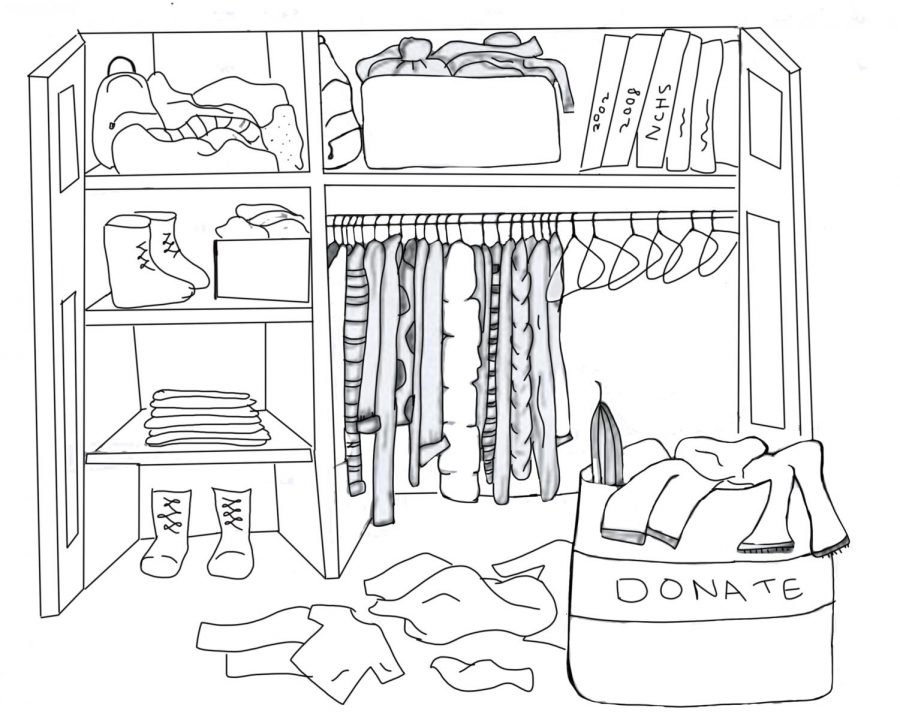Programs lead to self-deprecation
Lifestyle improvement shows such as “Tidying Up With Marie Kondo” and “Queer Eye” have been growing in popularity. The programs feature professionals helping everyday people improve their lives through better organizational habits, hygiene, fashion and more. The Central Times debates if these shows make an impact on viewers or if they are simply for entertainment purposes.
February 5, 2019
If you talk to anyone who knows me, they will tell you that I am the messiest person they have ever met. My room is in a constant state of disarray, my backpack is filled with crumpled assignments smushed down throughout the months and my car always has one or two half-empty Starbucks cups that I tell myself I will throw away eventually.
Yet, despite all this, I am addicted to self-improvement shows. When “Queer Eye” first came out, I binged the entire first season in a day, crying at the beautiful tales of everyday men making small changes in their lives for the better. “Tidying Up with Marie Kondo” made me realize how much unnecessary junk I had lying in my room – do the 12 empty water bottles on my floor really spark joy?
Watching these shows for me is like starting a new year. I make countless Pinterest boards with cute room ideas and roam the aisles of Home Depot and Ikea, looking at paint swatches and plants. A sense of motivation fills me that I have never felt before.
This motivation lasts me about a week. After convincing myself that this will be the time I get my life together, I am typically left with unopened boxes of room decor and clothes thrown on my floor while trying to figure out what to get rid of.
For procrastinators like me, self-improvement shows are like instant gratification. You feel motivated when you watch it. You feel like you are actually doing something productive, when really all you’re doing is sitting on the couch crying over the Fab Five’s beautiful makeover skills.
After binging these shows, I am always left with a sense of guilt and embarrassment at my current lifestyle. Seeing Marie Kondo perfect minimalism in every episode makes me shame myself. Why is something so easy for her not easy for me at all?
Self-improvement shows give you the illusion that you’re improving your life without having to do anything at all. For people who wake up early every morning, always have a clean room and their homework done on time, shows like this aren’t catered toward them. They’re catered towards people like me, who take five minutes to get ready in the morning and turn in Canvas assignments at 11:59 p.m.
However, people like me who watch these shows will rarely change their lives. Similar to a New Year’s resolution, it’s something I convince myself I’ll accomplish, and then two months pass and I feel horrible about myself while sitting in my still-messy room. Self-improvement shows give me a short-term rush of dopamine, but a long-term feeling of dread.








